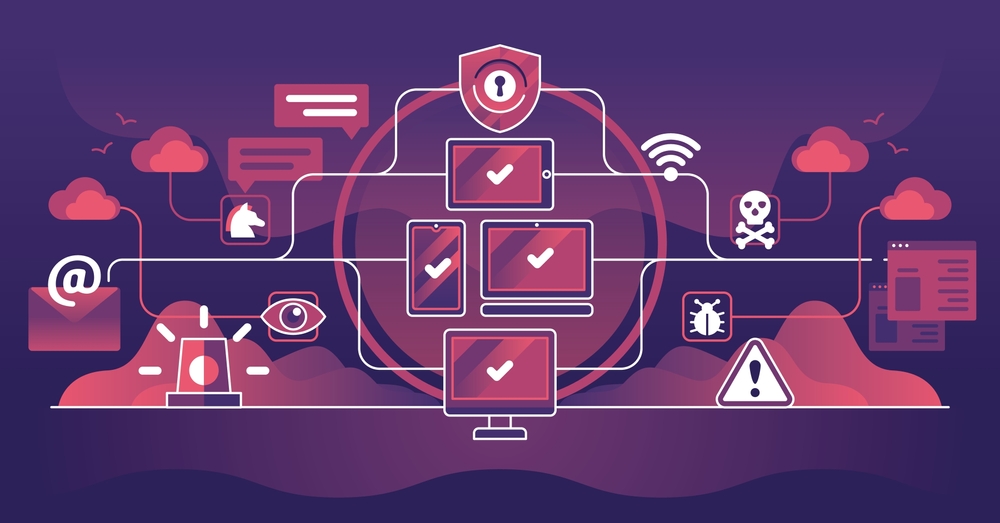Protecting Your Devices with Comprehensive Endpoint Security
Introduction: The Growing Importance of Endpoint Security
In today’s digital age, where work is increasingly remote and data is more distributed than ever, endpoint security has become a crucial aspect of protecting organizational networks. Endpoints, which include devices like laptops, smartphones, tablets, and desktops, are often the entry points for cyber threats. Comprehensive endpoint security is essential to safeguard these devices against malware, phishing attacks, and other cyber threats, ensuring the overall security of your network.
What is Endpoint Security?
Endpoint security refers to the process of securing endpoints or entry points of end-user devices from being exploited by malicious actors. It involves the deployment of security software on devices to protect against threats and manage and control security policies. Unlike traditional antivirus solutions, modern endpoint security provides a more robust defense by incorporating advanced features like threat detection, behavioral analysis, and machine learning.
Key Components of Comprehensive Endpoint Security
To effectively protect your devices, a comprehensive endpoint security strategy should include the following key components:
- Antivirus and Anti-malware Protection Traditional antivirus software plays a critical role in identifying and removing known malware threats. Modern solutions also incorporate anti-malware capabilities to detect and neutralize sophisticated threats like ransomware, spyware, and advanced persistent threats (APTs).
- Endpoint Detection and Response (EDR) EDR tools monitor endpoint activities in real-time, providing visibility into potential threats and enabling rapid response. They help detect suspicious behavior that may indicate a breach, allowing for immediate action to prevent damage.
- Threat Intelligence Leveraging threat intelligence involves using data gathered from various sources about current and emerging threats. This information is then used to improve the detection and mitigation of attacks, making the endpoint security system more adaptive and proactive.
- Encryption Encryption ensures that data stored on and transmitted from endpoints is secure. Even if a device is lost or stolen, encrypted data remains inaccessible to unauthorized users, protecting sensitive information from exposure.
- Access Control and Identity Management Implementing strong access control mechanisms, including multi-factor authentication (MFA) and Single Sign-On (SSO), helps ensure that only authorized users can access specific devices and data. This minimizes the risk of unauthorized access.
- Patch Management Regularly updating software and applying security patches is essential to close vulnerabilities that could be exploited by attackers. Automated patch management systems can help ensure that all endpoints are up-to-date with the latest security fixes.
The Benefits of Endpoint Security
Investing in comprehensive endpoint security offers numerous benefits for organizations:
- Protection Against Evolving Threats As cyber threats become more sophisticated, endpoint security solutions provide the necessary defense mechanisms to protect against new and evolving threats, reducing the risk of breaches and data loss.
- Enhanced Compliance Endpoint security helps organizations meet regulatory requirements by ensuring that sensitive data is protected and that security policies are enforced across all devices. This is particularly important in industries like healthcare and finance, where data protection is critical.
- Improved Operational Efficiency By automating security tasks and providing centralized management of endpoints, organizations can improve operational efficiency. This reduces the burden on IT teams and allows them to focus on more strategic initiatives.
- Increased User Productivity With robust endpoint security in place, users can work confidently without fear of cyber threats, leading to increased productivity. Security solutions that operate seamlessly in the background without disrupting workflow contribute to a more efficient work environment.
Challenges of Implementing Endpoint Security
While endpoint security is vital, implementing a comprehensive solution comes with its own set of challenges:
- Complexity and Integration Deploying and managing endpoint security across a large number of devices can be complex, particularly in organizations with diverse IT environments. Ensuring that all components of the security system work seamlessly together is essential for effective protection.
- Cost The cost of comprehensive endpoint security solutions can be high, especially for small and medium-sized businesses. However, the potential cost of a data breach often far outweighs the investment in security.
- User Resistance Employees may resist security measures that they perceive as inconvenient or intrusive. It’s important to strike a balance between security and usability to ensure compliance without hampering productivity.
Best Practices for Endpoint Security
To maximize the effectiveness of your endpoint security strategy, consider the following best practices:
- Regular Security Audits Conduct regular security audits to identify and address vulnerabilities in your endpoint security system. This helps ensure that your defenses remain strong against evolving threats.
- Employee Training Educate employees about the importance of endpoint security and how they can help protect the organization. This includes training on recognizing phishing attempts, securing personal devices, and following security policies.
- Centralized Management Use a centralized management console to monitor and control all endpoints within your organization. This allows for easier deployment of security policies, updates, and patches.
Conclusion: Protecting Your Devices with Comprehensive Endpoint Security
In an increasingly connected world, securing your endpoints is more important than ever. By implementing a comprehensive endpoint security strategy, organizations can protect their devices from a wide range of cyber threats, ensuring the security and integrity of their data. Whether you’re a small business or a large enterprise, investing in robust endpoint security is essential for safeguarding your digital assets and maintaining a secure work environment.
For more information on IT services and data security solutions, visit NABCO IT Services.
For professional assistance with data security, contact us to ensure your organization is protected with the latest security measures.
Read more related articles to enhance your knowledge
What is Data Security? The Ultimate Guide
Why Data Security Matters: Protecting Your Information in a Digital World



